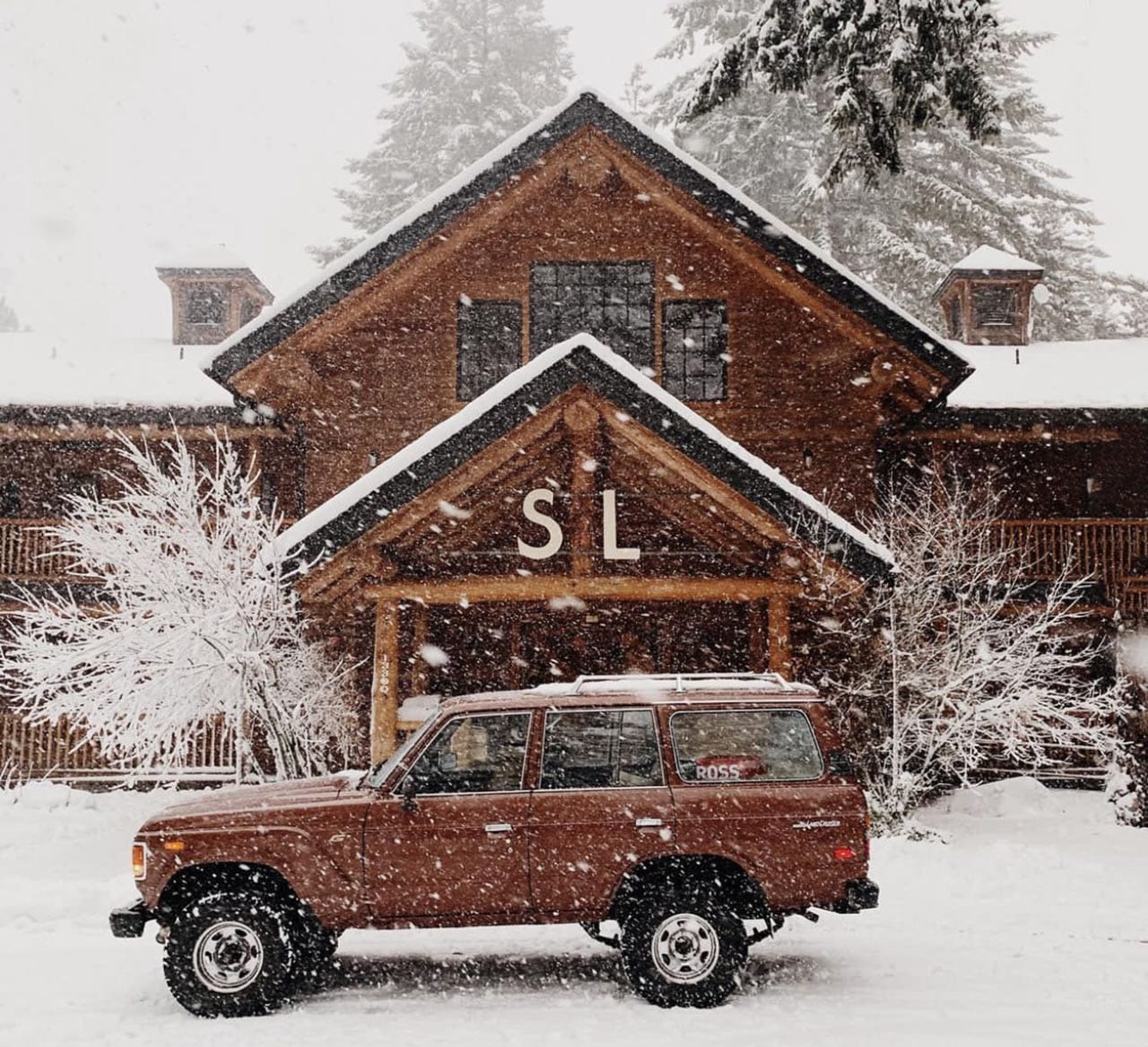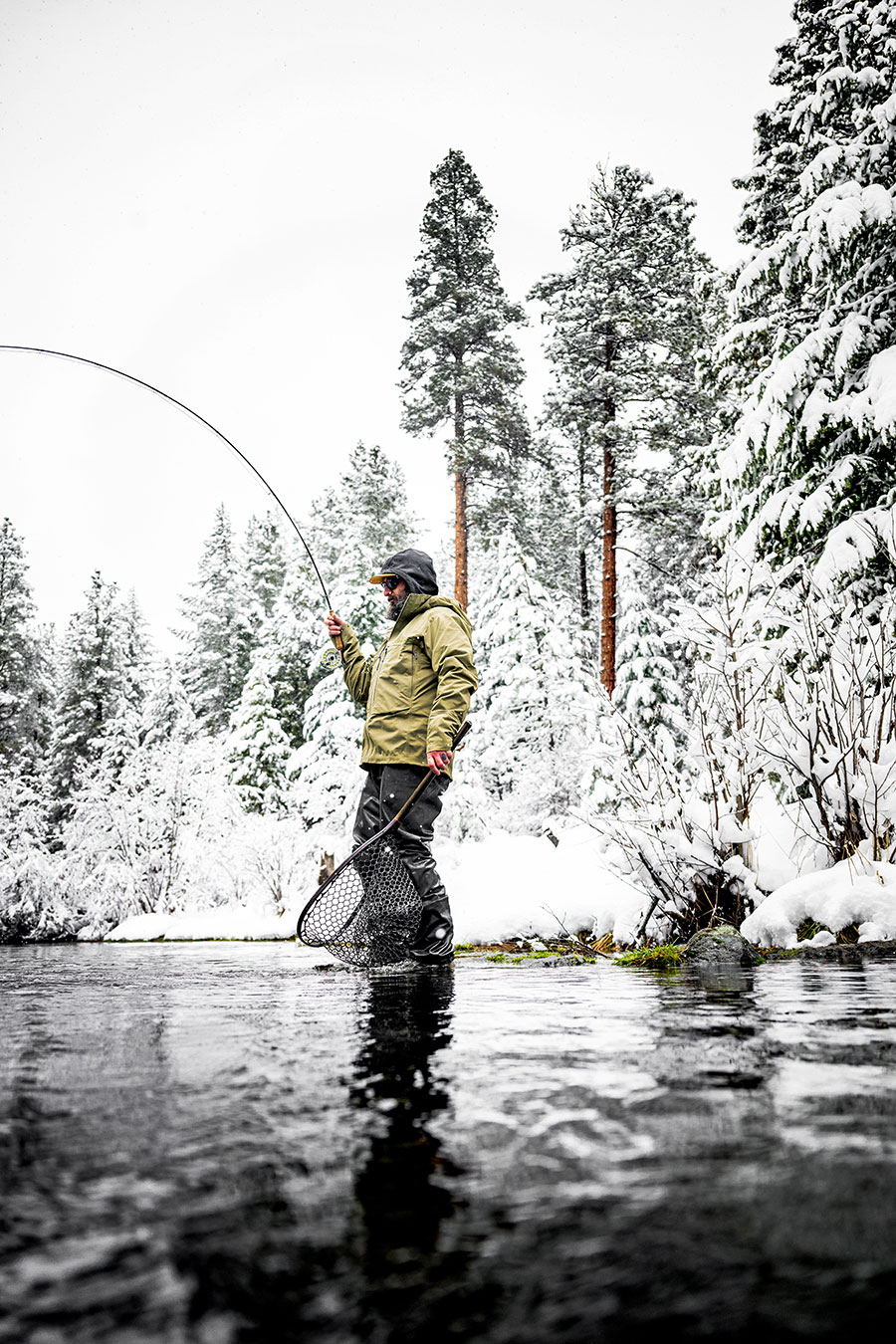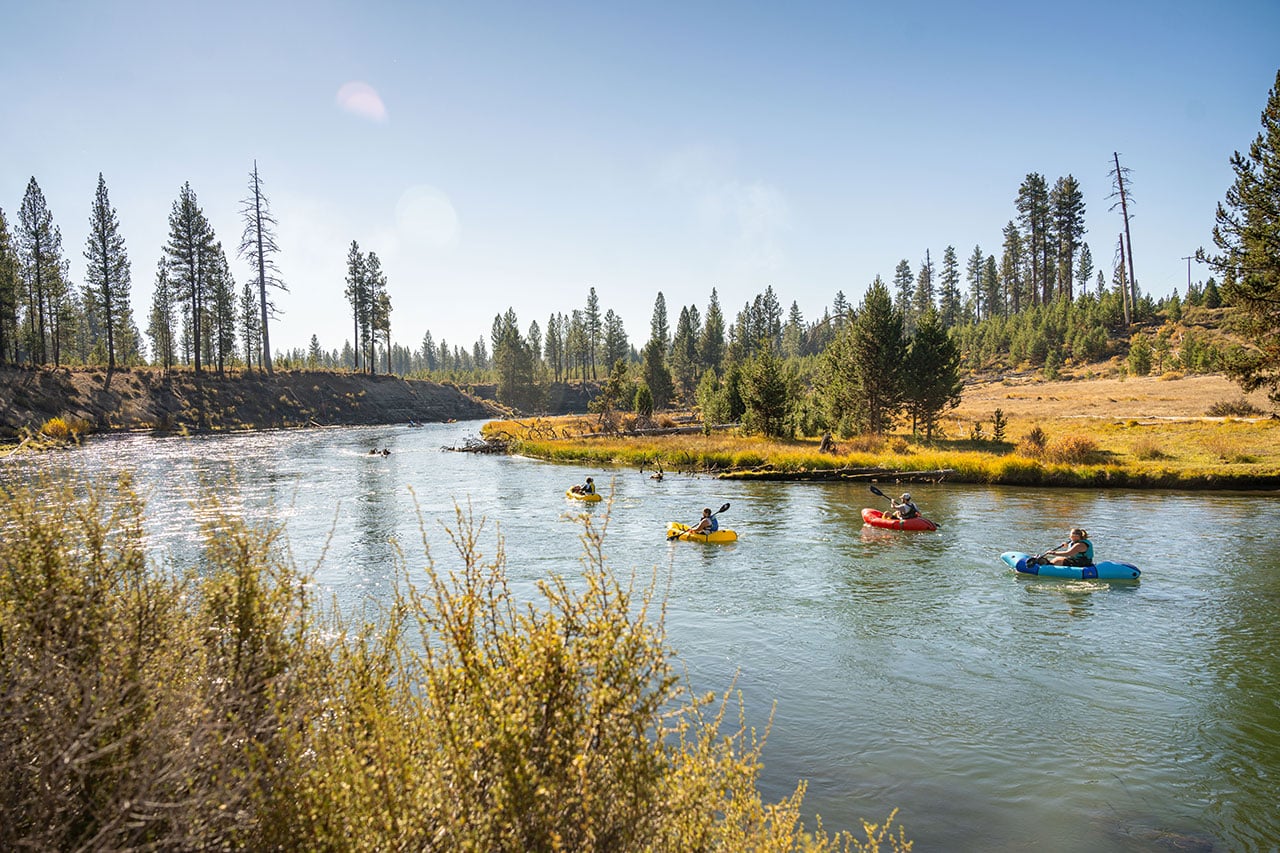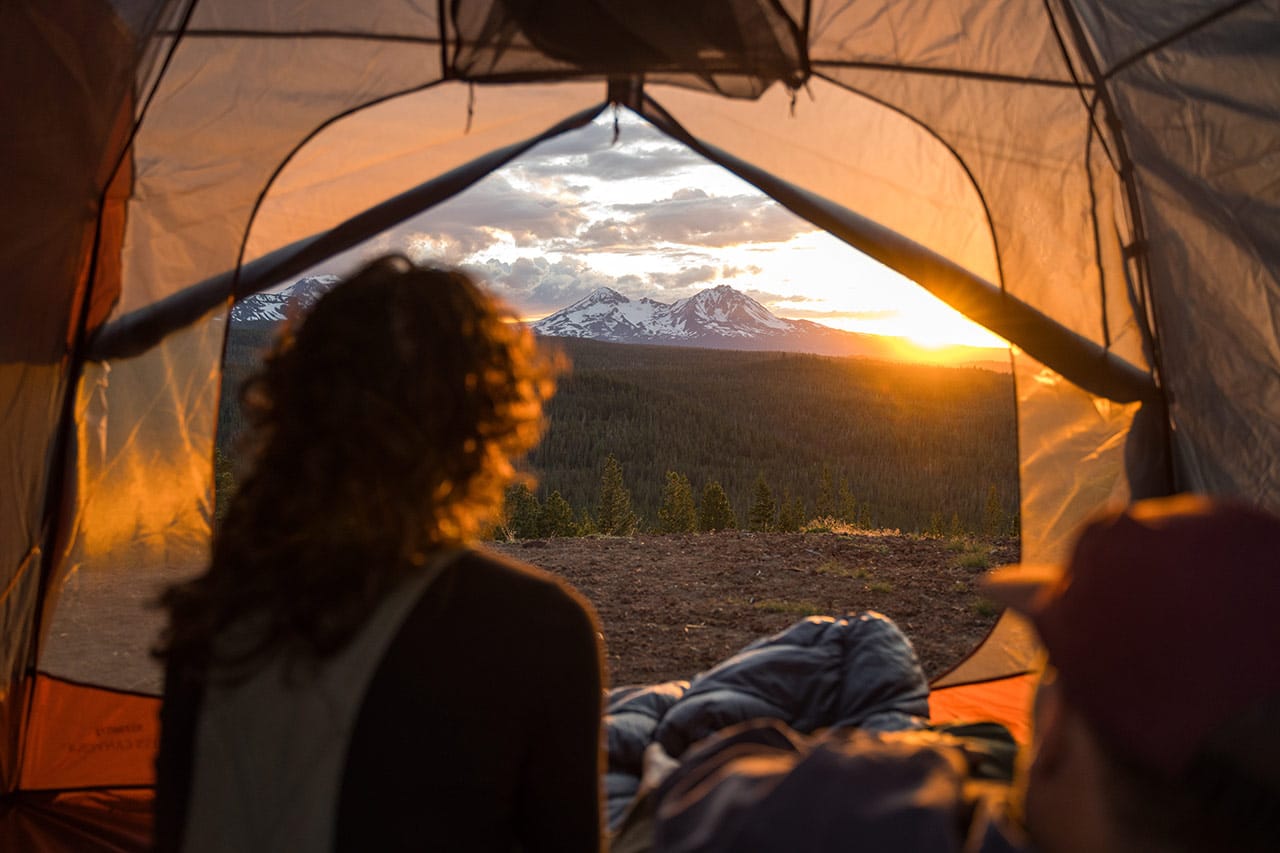[Editor’s Note: It’s with heavy hearts that we share Stratton Matteson passed away February 24, 2026, in a British Columbia avalanche. This story remains a lasting legacy of his commitment to promoting sustainability and to the sports he loved.]
This winter, while driving to Mt. Bachelor on a bluebird day, keep an eye out for a man on a bike with a splitboard attached to the frame. He’ll most likely be smiling. That’s Stratton Matteson.
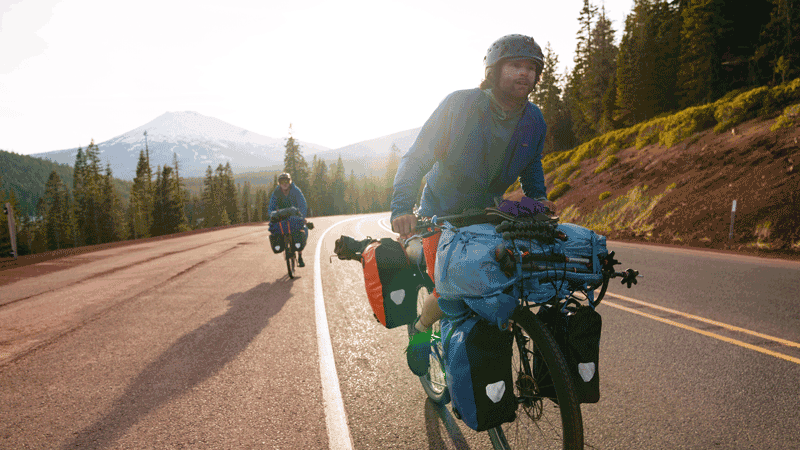
Matteson grew up between Oregon and Vermont, and moved back to Bend in his teens. His parents were both environmentalists, and he remembers summers spent traveling through public lands in a Volkswagen van. That outdoor childhood naturally led to splitboarding and other activities in the backcountry. But how to access the backcountry? He wasn’t much for snowmobiles or helicopters. He spent several seasons traveling the west in his van, finding powder along the way, before a friend suggested to him that this type of snowboarding and environmentalism just didn’t align. “It was a little bit of a push,” he said. Matteson remembers thinking, “I’m traveling around, I’m using all this fuel just for really the sake of my own enjoyment. And that didn’t feel integral to me.”
That sparked a change. Matteson, who owns a small native plant restoration-based landscaping business in Bend, decided it was time to take action for himself. Matteson was highly influenced by Rob Greenfield, a sustainability activist whose high-profile projects have included wearing trash around New York City and growing and foraging all his food for an entire year. Matteson took a cue from Greenfield: “[Projects] like that were really inspirational to me as far as living the change and creating it now, rather than waiting for someone to tell you to change or policies to force it.”
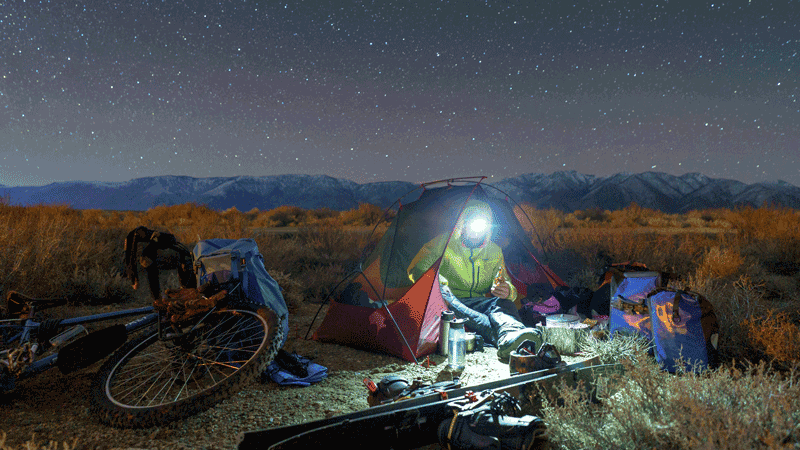
His plan started simply. In 2018, Matteson committed to using only his bike to get him to the trailheads that would be the start of his splitboarding adventures. “I don’t think I actually ever doubted I could do it,” he said. “And once I was doing it, I didn’t really want to turn back.” The commitment wasn’t without its challenges. There was the weather, of course, and the added time to reach the places he wanted to go. But there was also the issue of friends who found his method for cutting fossil fuel consumption inconvenient—they wanted him to come on their far-flung adventures, no matter the impact of his carbon footprint. He resisted. The payoff? “The adventure,” Matteson said. “The adventure is exponential when you add this level of getting there on your own the whole way. It’s also extremely fulfilling, just like climbing a mountain, when you climb the whole thing from your house, there’s a lot of fulfillment there, and joy.”
You might as well try…I do think one little drop in the lake ripples out. You’ve got to start somewhere, and someone has to commit to something and start that cultural shift.
Since 2018, Matteson has kept his commitment and expanded it to include biking basically everywhere. Matteson has bikepacked to areas around the west, but he’s also gotten to know his local area on a deeper level. “I could go travel all around and get these brief little glimpses and brief little tastes of places, but I think part of this cultural change is a deep localization of all sorts of things, and one of those would be our recreation and traveling and adventure,” he said.
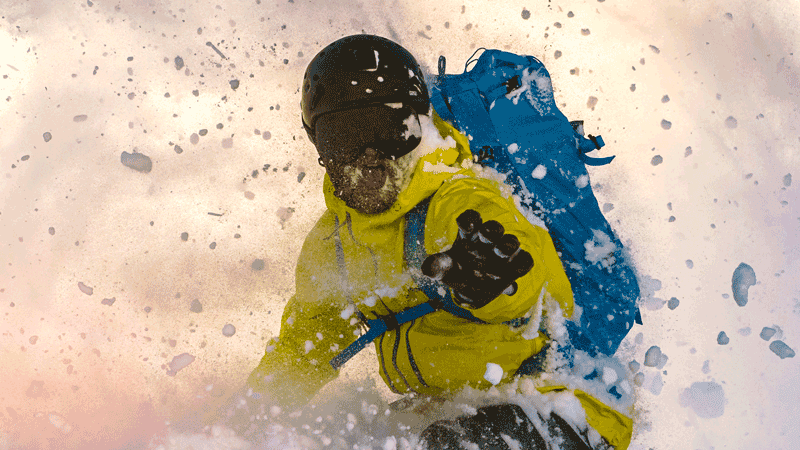
Staying close to home is Matteson’s way of combating what he sees as a cultural issue with overconsumption—of learning to be OK with less. We can all do our part, he said, and he stresses that little changes from each of us can add up to big change overall. Case in point: a great deal of transportation emissions come from trips that are within 2-to-3 miles from home. Matteson challenges the community to shift those trips from cars to bike, walking or public transit, even carpooling. That, he said, would make a big difference, and it’s doable. He also suggested people consider their bigger trips, particularly by plane—he asks: Are they necessary? Can you find adventures at home instead?
Next up, Matteson plans to make his landscaping company into a bike-based business. “I don’t want to be part of the problem,” he said. “You might as well try…I do think one little drop in the lake ripples out. You’ve got to start somewhere, and someone has to commit to something and start that cultural shift.”

